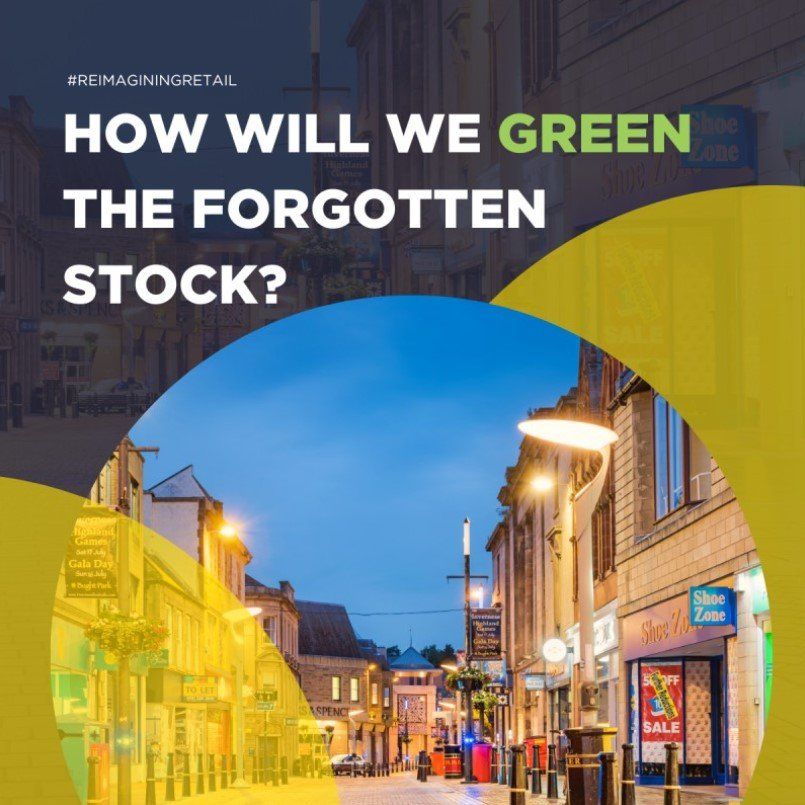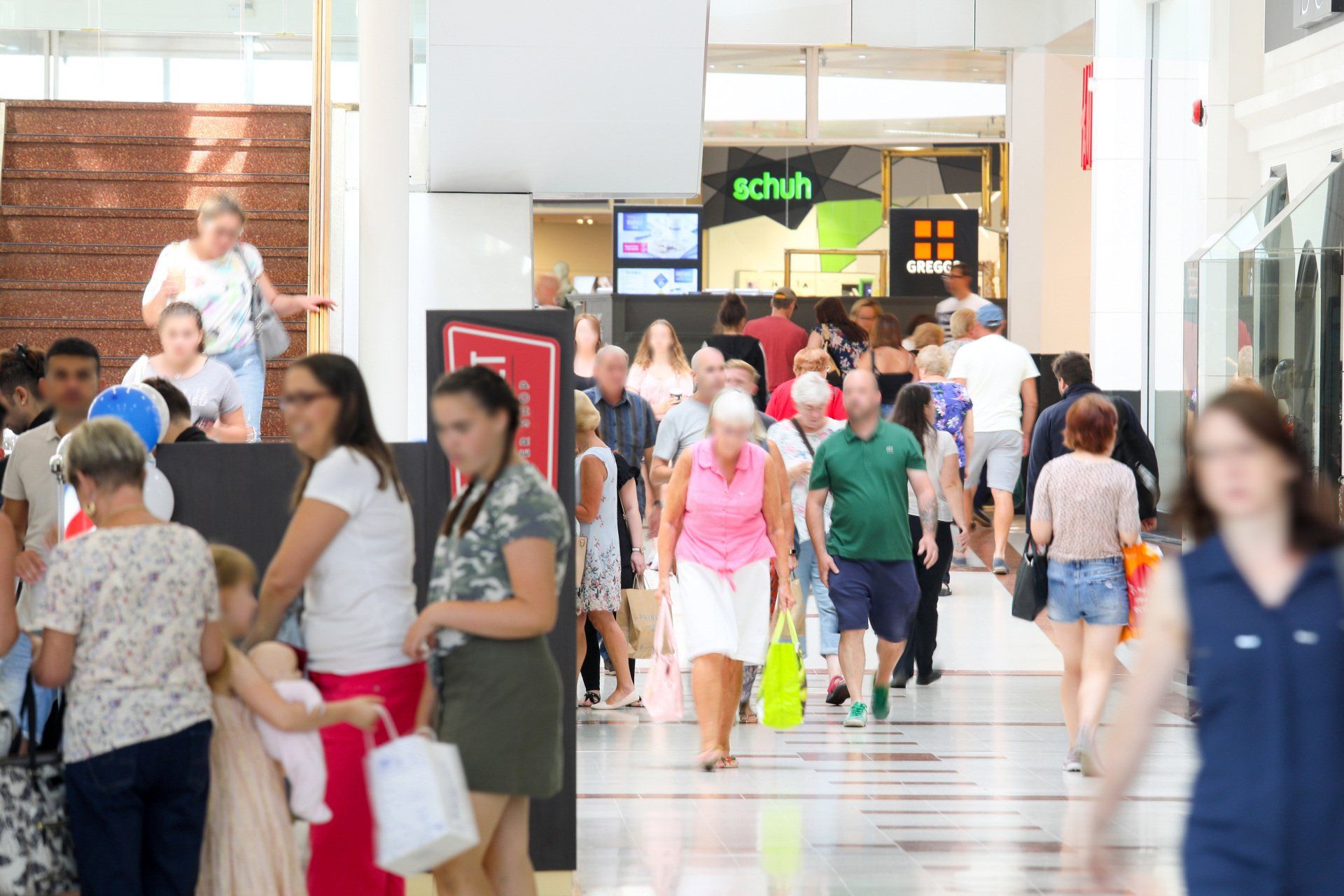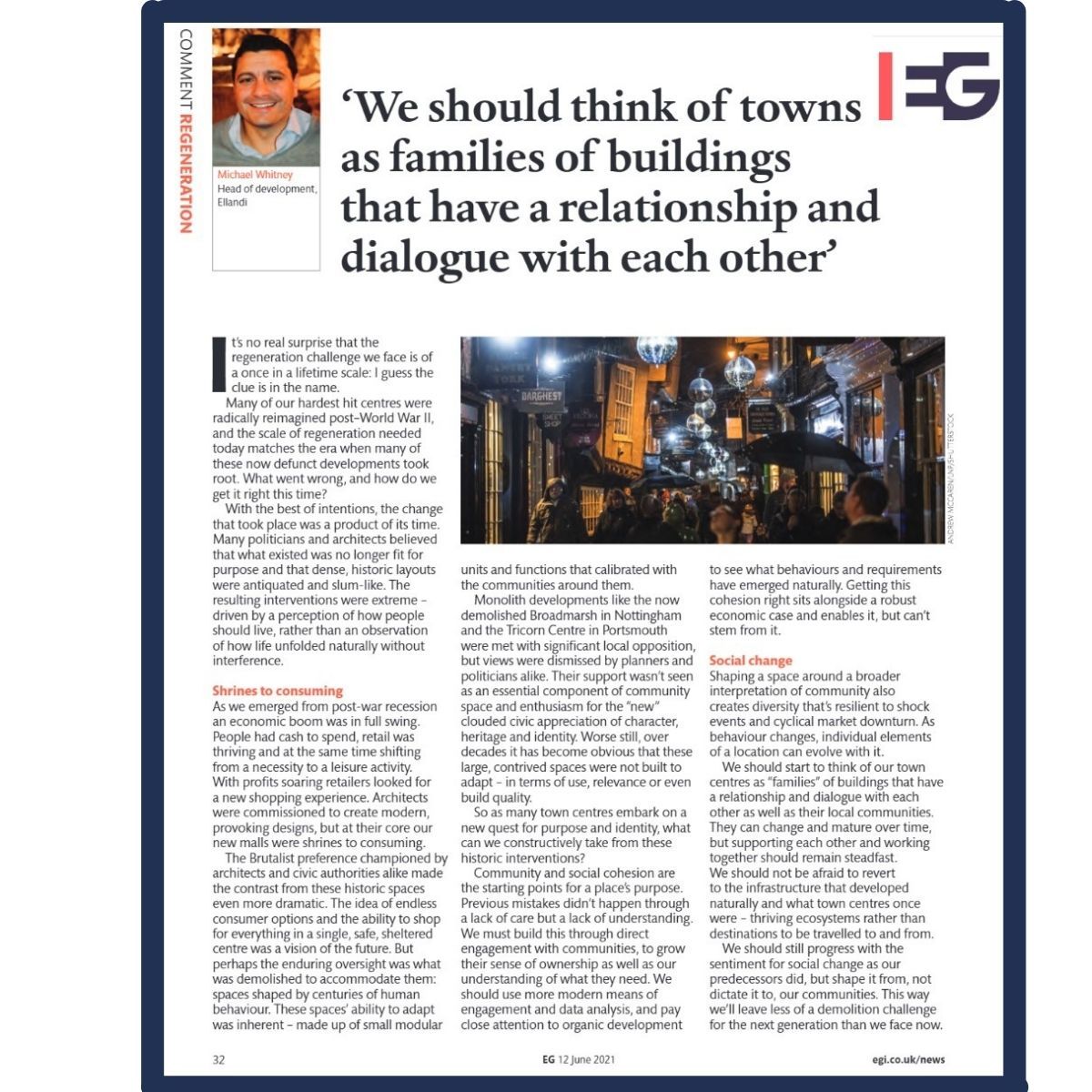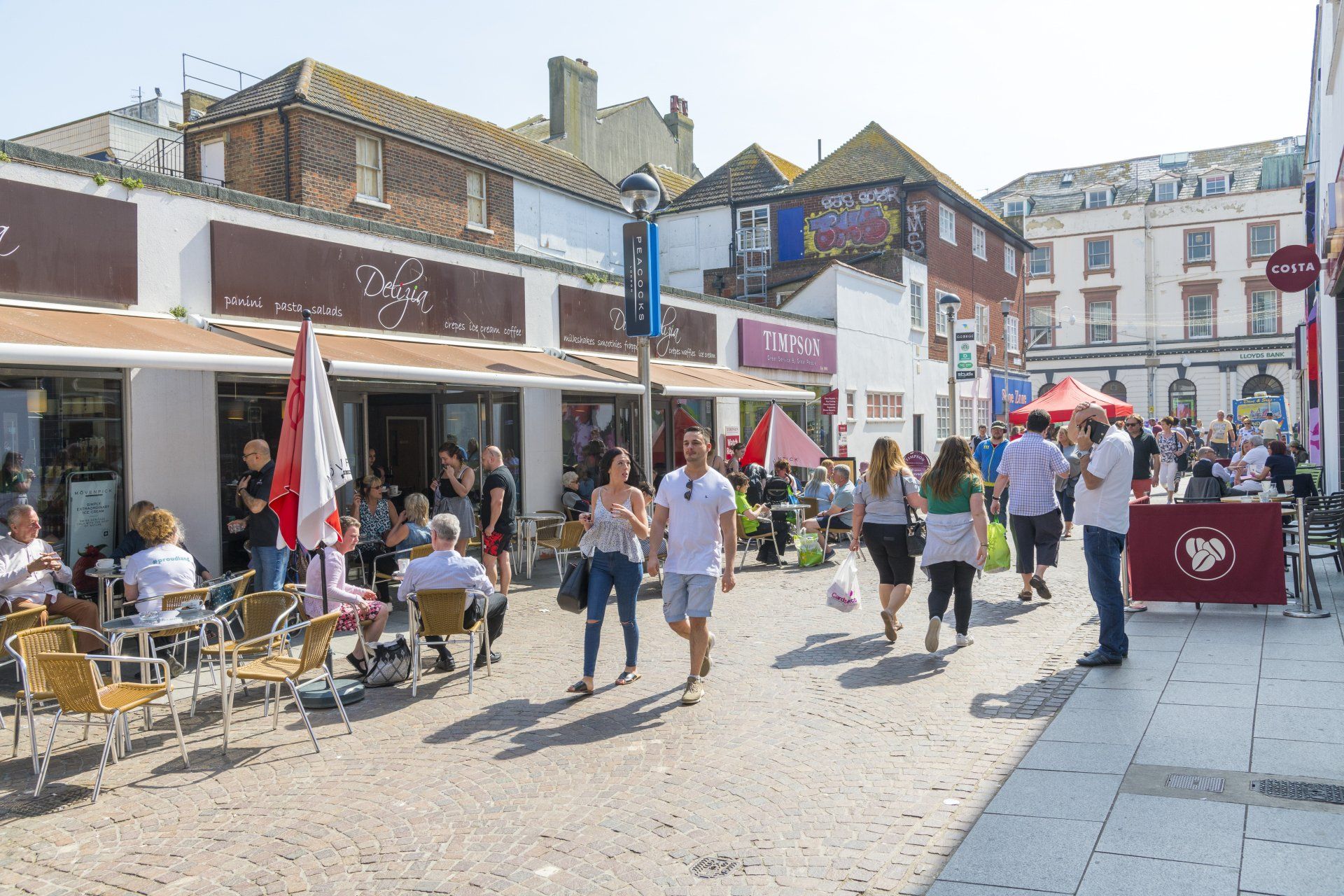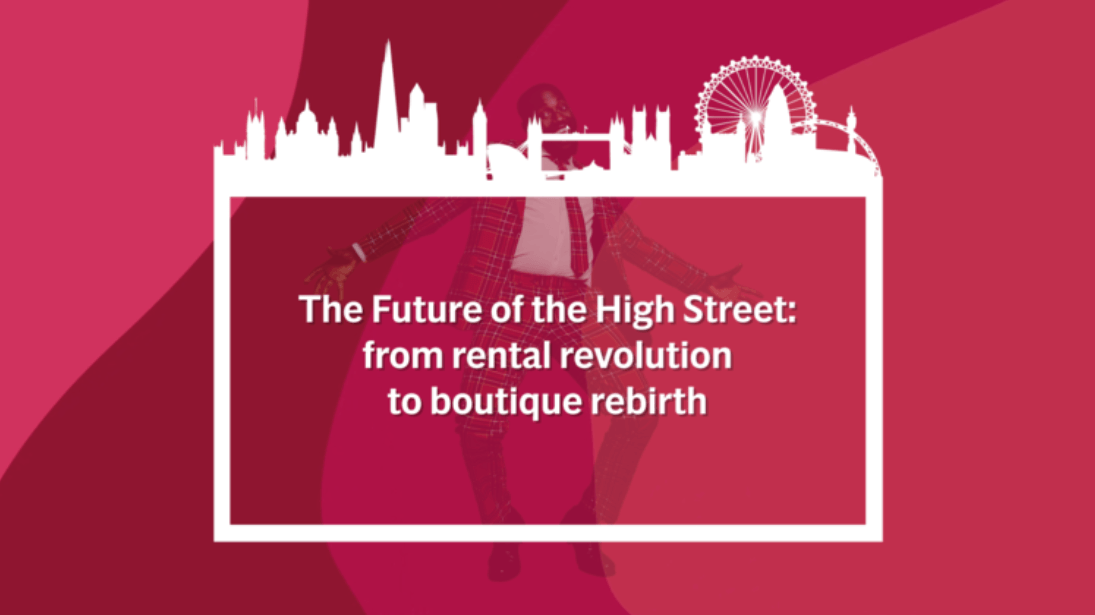
0207 016 3270
contact@ellandi.com
NEWS & INSIGHTS
Sharing Ideas

Works have commenced on a £15 million healthy living centre at The Pentagon Shopping Centre in Chatham. Strategic asset and development manager, Ellandi is working with Medway Council to reinvigorate the shopping centre as part of the council’s wider regeneration plan. In repurposing the redundant retail space in the centre, Ellandi’s analysis showed, that not only were more civic uses needed to address health inequality and crime, but they would also bring an extra million visitors to the centre each year. The shift to civic occupiers would create a more robust mix of occupiers with strong covenants and keep local public sector spending within the borough. Ellandi used evidenced-backed business cases to approach public sector occupiers and show the positive impact a central location would have on their operations: interest began as smaller units grew to much larger anchor space. In 2019 Medway Council acquired their local shopping centre as a pivotal piece in their wider regeneration plan. Three years on The Pentagon is midway into a multi-use civic hub that delivers value for both its community and the council. The regeneration that has taken place will lead to better health and social outcomes for Chatham and will create a stable source of income to fund wider regeneration. Plans include redeveloping the council-acquired office building that sits above the centre to residential accommodation, improving parking and creating ‘pocket parks’ throughout the public realm. NHS Kent and Medway, and Medway Council have worked in partnership to develop proposals to bring it to the Pentagon Centre and create a hub for patients to access a greater range of services, more quickly and conveniently. Brooke Tahau, Director of Development at Ellandi, said: “The development of the James Williams Healthy Living Centre is a great testament to our dedication to enhancing Retail Plus Health. There is a growing imperative to bring healthcare back to the community, and this centre embodies our commitment to providing accessible, comprehensive care in the heart of centres. By working together with the NHS and Medway Council, we are excited to create a space that not only meets the immediate needs of residents but also adapts to future healthcare demands.”) Medway Council’s Deputy Leader and Portfolio Holder of Public Health Teresa Murray said: “We are delighted that we are one step closer to opening a first-class health facility in Chatham town centre, providing quality care in an easy-to-access location. “I am honoured to confirm that the new centre is being named after our late Director of Public Health, James Williams. James was an inspirational figure and huge driving force behind improving health outcomes across Medway, as well as addressing health inequalities across the South East. “The James Williams Healthy Living Centre will stand as a fitting tribute to his work and aspirations and is a big step towards helping to reduce health inequality and improving the health and wellbeing of residents in Medway. I look forward to seeing this exciting project start to take shape over the next year.” Paul Bentley, NHS Kent and Medway Chief Executive, said: “This is outstanding news for the people we serve in the Chatham area. We know more needs to be done in parts of Medway to help improve people’s health and wellbeing and this healthy living centre will help people access the right care, in the right place. “With good transport links and a central location, the centre will also have room to expand over time to offer more services for local people meaning we can join up services, to provide care around people’s individual needs.” Medway Council has appointed Ellandi as development manager to lead the team; contractor partn er Bauvill; architecture firm LSI Architects ; and Structural and MEP consultants Ingleton Wood and Black Cat Building Consultancy as project managers.

Our Marketing Director, Victoria Holloway will be one of the judges for The Revo’s this year. Victoria is a senior marketing and communications professional with extensive experience in destination marketing. She has managed high-profile mixed-use development projects across various sectors and will be a good addition to the judging panellists for these coveted awards. They recognise and reward the best of the best in the built environment from asset management to customer experience, operations to destination marketing. At its core, The Revo’s is all about celebrating excellence.

NewRiver REIT has acquired Ellandi for an initial cash consideration of £5 million. This acquisition will incorporate our 16 shopping centre asset management mandates, spanning over 6.3 million sq ft and 10 different partners , into NewRiver’s portfolio. Consequently, NewRiver’s combined capital partnership business will now manage £1.5 billion in assets across a portfolio of 21 shopping centres and 18 retail parks. Allan Lockhart, chief executive of NewRiver, said: “We believe there will be considerable opportunities in the retail real estate market to accelerate the growth of our business from this point. By bringing together two high-quality teams with complementary skills and experience in asset management and regeneration, together with the balance sheet resources we have available, we are well positioned to participate in these opportunities, both on the balance sheet and through capital partnerships.” Our two co-founders and owners, Morgan Garfield and Mark Robinson, will join NewRiver as head of capital partnerships and head of regeneration respectively. They will also join the executive committee. Mark Robinson says: “Morgan and I are extremely proud of what the team at Ellandi have achieved to date in delivering sustainable change to the UK’s retail places and believe this transaction creates an exciting opportunity to combine two market leading retail asset management businesses with shared growth ambitions.”
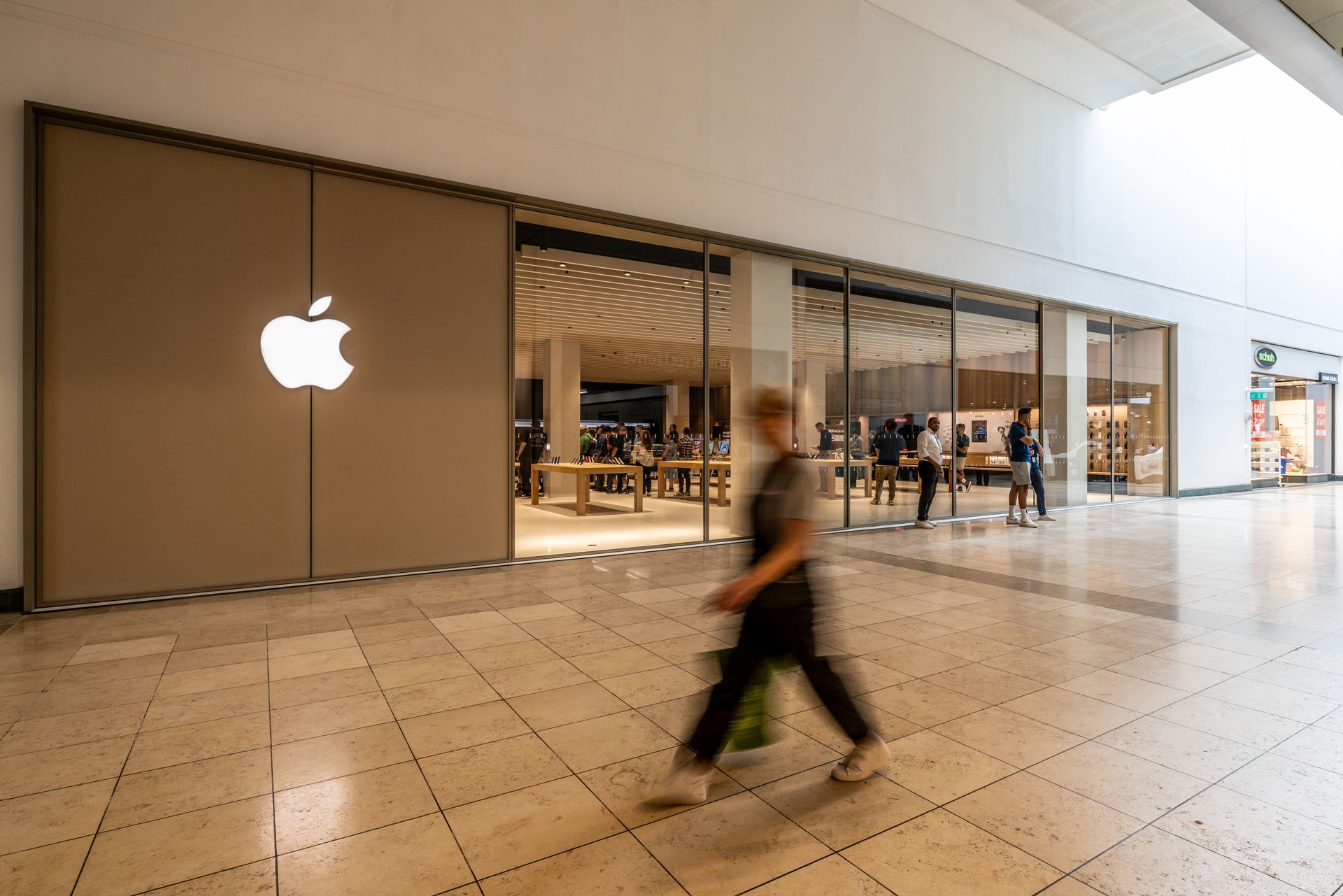
Midsummer Place in Milton Keynes is adding to its existing line-up following a number of recent new signings and expansions at the centre. Apple has taken a new, bigger unit in the shopping centre. The new letting will deliver a next generation Apple store, the second to open in the UK and the first outside of London. Apple will occupy circa 13,000sq ft, which is 8,000sq ft more space than previously. Its former unit is part of our wider asset management strategy for Midsummer Place, with more announcements expected. An exciting leisure offer is also due to open at Midsummer Place with the introduction of Lane 7, which will be opening its largest location yet – complete with facilities not seen elsewhere. This will open alongside Frasers in the final quarter of this year. These brands will complement the current fashion offer alongside the recent introduction of new F&B food pods to enliven the recently transformed Boulevard. Simon Anderson, Director, Asset Management says: “There has been a strong start to this year with a wave of new lettings at Midsummer Place. These are testament to continued occupier interest in the scheme and complement the existing brand offer in place. “Apple’s choice to open the second of its next generation stores in the UK at Midsummer Place is testament to the strength of this evolving line-up, as well as Milton Keynes’ diverse shopper demographics.” As a result of the new lettings, over 100 additional jobs will be created in the centre.

We are delighted to announce four well-deserved promotions as we continue to evolve and expand into destination shopping and regeneration spaces. Brooke Tahau has been appointed Director of Development. Brooke is dedicated to transforming town centres into lively hubs that provide Retail Plus health and other services within our portfolio. Holly Harcus now becomes an Associate Director within the Development team. Her forward-thinking approach brings new energy to town centre projects as well as driving forward new initiatives which create vibrant spaces for the community to enjoy. Tom Ellams has taken on the role of Associate Director within the Asset Management team. His strategic vision for Milton Keynes has been instrumental in turning Midsummer Place into a thriving destination, with the recent transformation of the Boulevard and the announcement of Frasers Group and Lane7 due to open later this year. Harry Jeffery has been promoted to Senior Asset Manager. Harry plays a key role in reshaping both destination and community shopping centres to drive footfall and foster positive change in the community. “These promotions reflect our commitment to excellence and innovation as we redefine the Retail Plus landscape into dynamic, multifunctional destinations that help shape our town centres to reflect the needs and wants of their visitors and local communities.” says David Payling , Chief Operating Officer.

Ellandi has been shortlisted for EG 's Public Private Partnership Award. Our social value-focused partnership with Blackpool Council is an unparalleled example of leveraging the transformation of the retail core to drive the wider regeneration of Blackpool town centre. Our collaboration is delivering new F&B, cinema, a market, elevated retail, as well as improvements to the public realm. Our commitment to research aligns perfectly with Blackpool Council's innovative approach, using data to drive decision-making to ensure that every decision is based on solid evidence and tailored to meet the changing needs of residents and visitors. This is just the beginning of Blackpool's transformation. As more positive changes take place, we look forward to continuing to work with the council and other stakeholders to redefine the retail environment and ensure the town centre remains vibrant and relevant for generations to come.

Last month at UKREiiF in Leeds, BE News held a roundtable discussion on The Social Value of Retail. Sponsored by Workman LLP , Sam Fox our Head of Research & Analytics, joined other senior industry and local authority figures to explore how developers, investors, and retailers are making retail central to vibrant, mixed-use communities. The discussion covered the possibilities for partnering with community organisations and examined retail spaces that have effectively incorporated social responsibility into their practices, benefiting the communities they serve. Our ‘community first’ approach unlocks financial value by creating social and environmental value. Each town centre we improve, improves the lives and opportunities of the people who live there.
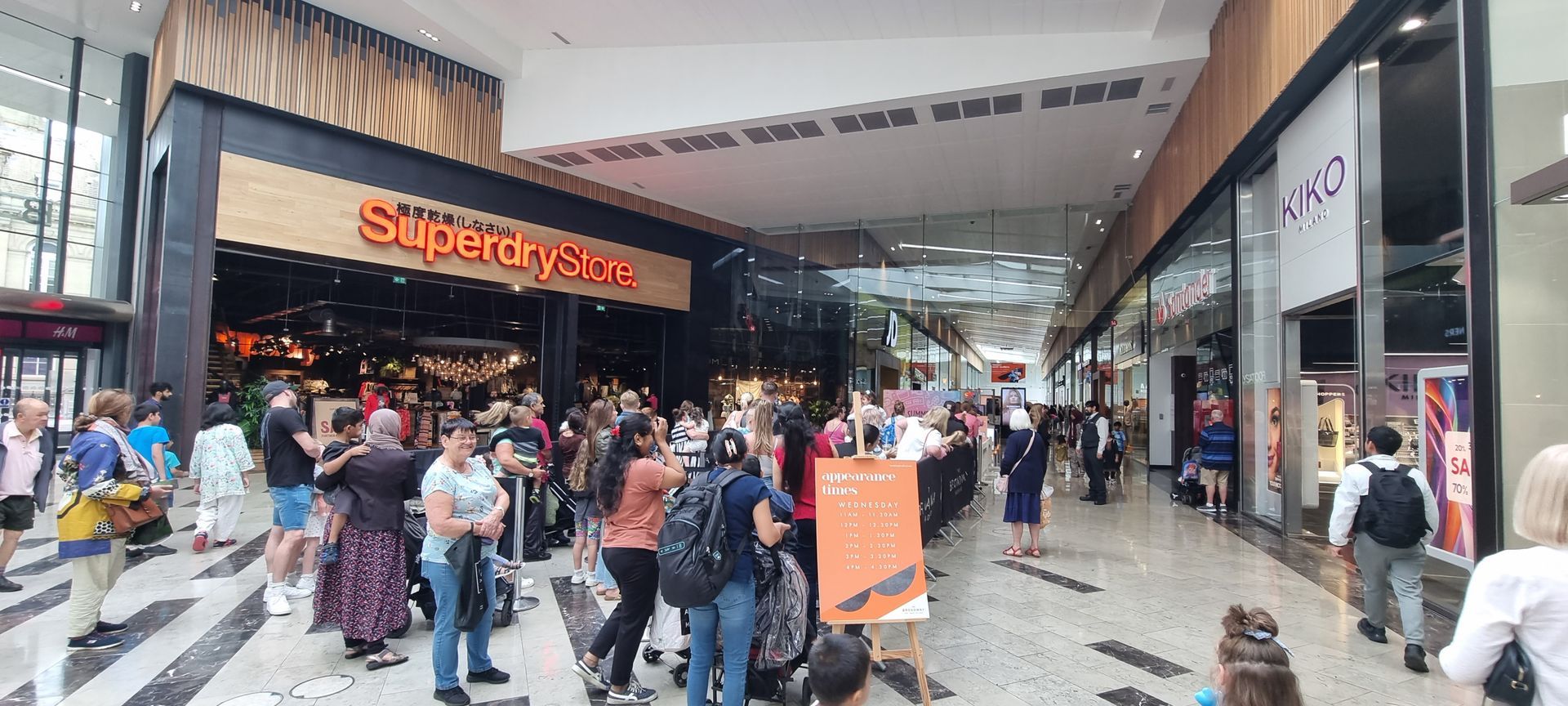
The Broadway in Bradford has undergone a remarkable transformation. Facing challenges like a vacant Debenhams unit and rising vacancies, we took a data-driven approach to connect with the community and re-energised the spaces to create an exciting shopping destination. A revamped leasing strategy brought in new and innovative tenants like Flip Out Indoor Adventure Park and Sakkusamba and the shopping centre is soon to welcome a debut UK store of a top Pakistani fashion retailer. "Additions like these, have not only improved the shopping experience but also boosted the overall appeal of The Broadway and Bradford as a whole. Our team efforts have been met with positive feedback, proving that our project is making a real difference in the city. We've seen an increase of 6.5% in footfall as well as an increase of +27% in the number of visitors from outside the immediate 30-minute drive time, attracting higher affluence groups in the wider catchment helping to drive increased spend." says Christina Beggan , Director Asset Management.
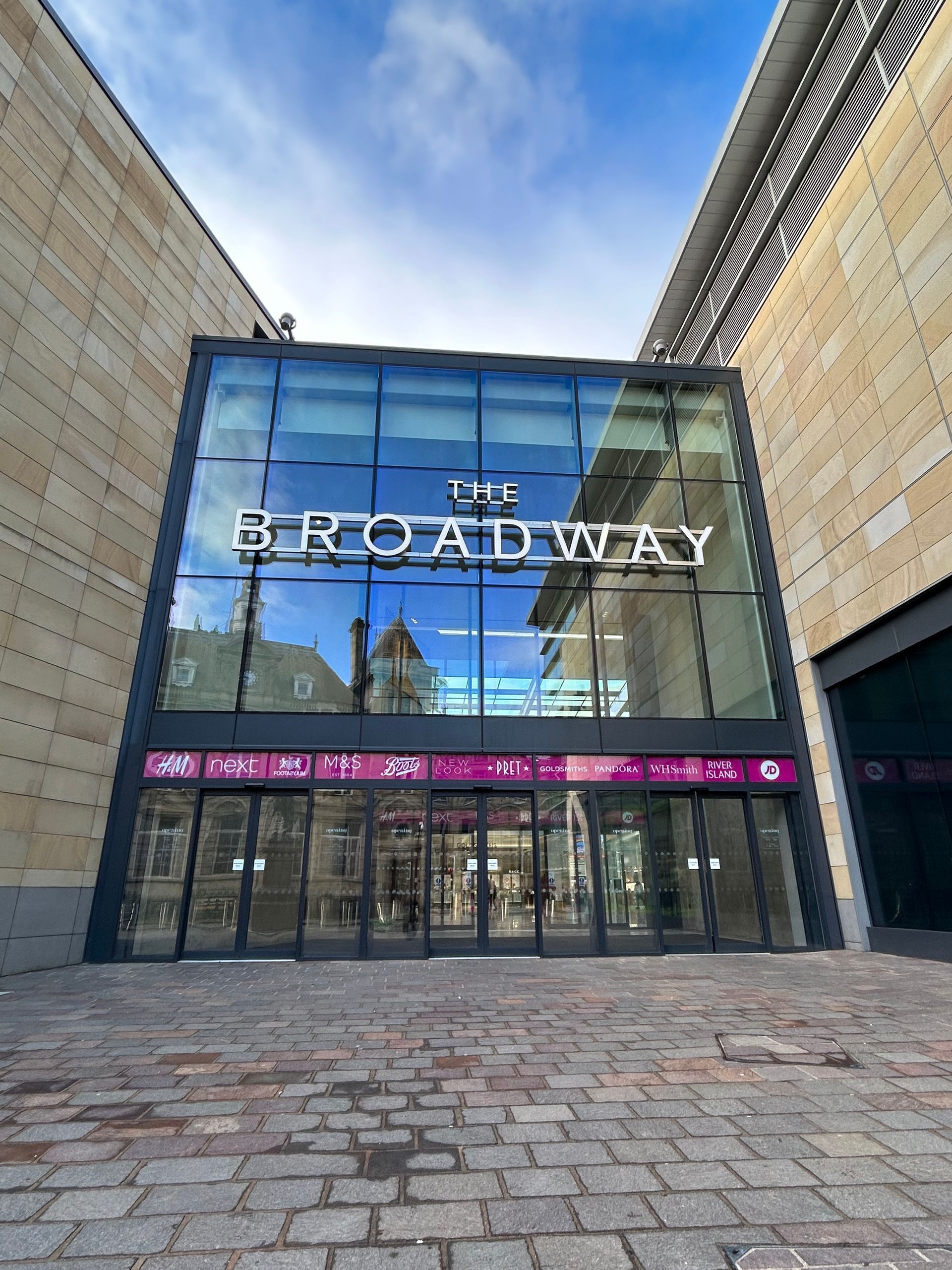
Ellandi has opened a Sensory Room at The Broadway, our destination shopping centre in Bradford. The custom-built sanctuary was officially opened by Bradford’s new Lord Mayor Cllr Bev Mullaney. Created by a Shipley-based sensory room and equipment designers and manufacturers, SpaceKraft, the space has been hailed as a “serene environment” for neurodiverse people of all ages to regain a sense of calm. Its features include mood lighting, mirrors, a musical hand and touch wall, an LED colour curtain and even an acoustic bed. Christina Beggan, Director, Asset Management at Ellandi says “Incorporating a sensory room at The Broadway isn't just about providing a space; it's about creating a haven where every individual, regardless of their specific needs, feels understood and included. It's about transforming a shopping trip where everyone feels supportive and can enjoy memorable shopping experiences for years to come. We have always been driven to create an inclusive community for our shopping centres and we are looking forward to shoppers and visitors using this space’ Councillor Sue Duffy, Portfolio Holder for Children’s and Young People’s Neurodiversity, said: “We have recently started a journey working closely with our partners with the aim of making Bradford a neurodiverse friendly district so that when we refer to our city being inclusive it means neurological differences are recognised and respected by everyone. This is a key milestone for all of us as we launch the sensory room in the Broadway, which has been designed specifically to support people of all ages with physical and cognitive skills and also provide a safe space for those who may become overwhelmed by all the sensory output in our modern cities.” Located in the heart of Bradford, The Broadway is home to big-name fashion and lifestyle brands like H&M, Next and Boots as well as an extensive range of leisure and eateries for visitors to enjoy. Attracting over 10.5 million visitors each year, the centre has also recently introduced quiet hours to offer a more peaceful shopping experience. It is a step further towards the vision to cater to the needs and wants of the local community to transform The Broadway to a fully inclusive destination for its shoppers who are looking for an all-around experience when visiting the centre.

We’re excited about Delivering Retail Plus. We are asset and development managers who invest in and create urban places with purpose. We are 16 years young, B Corp certified, and proudly independent since day one. We currently manage 18 retail-led assets across the UK, from Bradford to Chatham, from Leicester to Milton Keynes and Blackpool to Yate. We work with owners, global investors, local authorities, and lenders. For communities, retailers, hospitality and leisure operators, and healthcare providers. We transform spaces into places: places that attract and serve everyone in their communities. Places that create a sustainable impact for the businesses we partner with and the local lives we enrich. We call this Retail Plus: aligning social and financial agendas to improve the performance of both. If you’d like to know more please get in touch with one of our team. A few of us will be speaking at UKReiif next week!
Recent News
Research & Insights
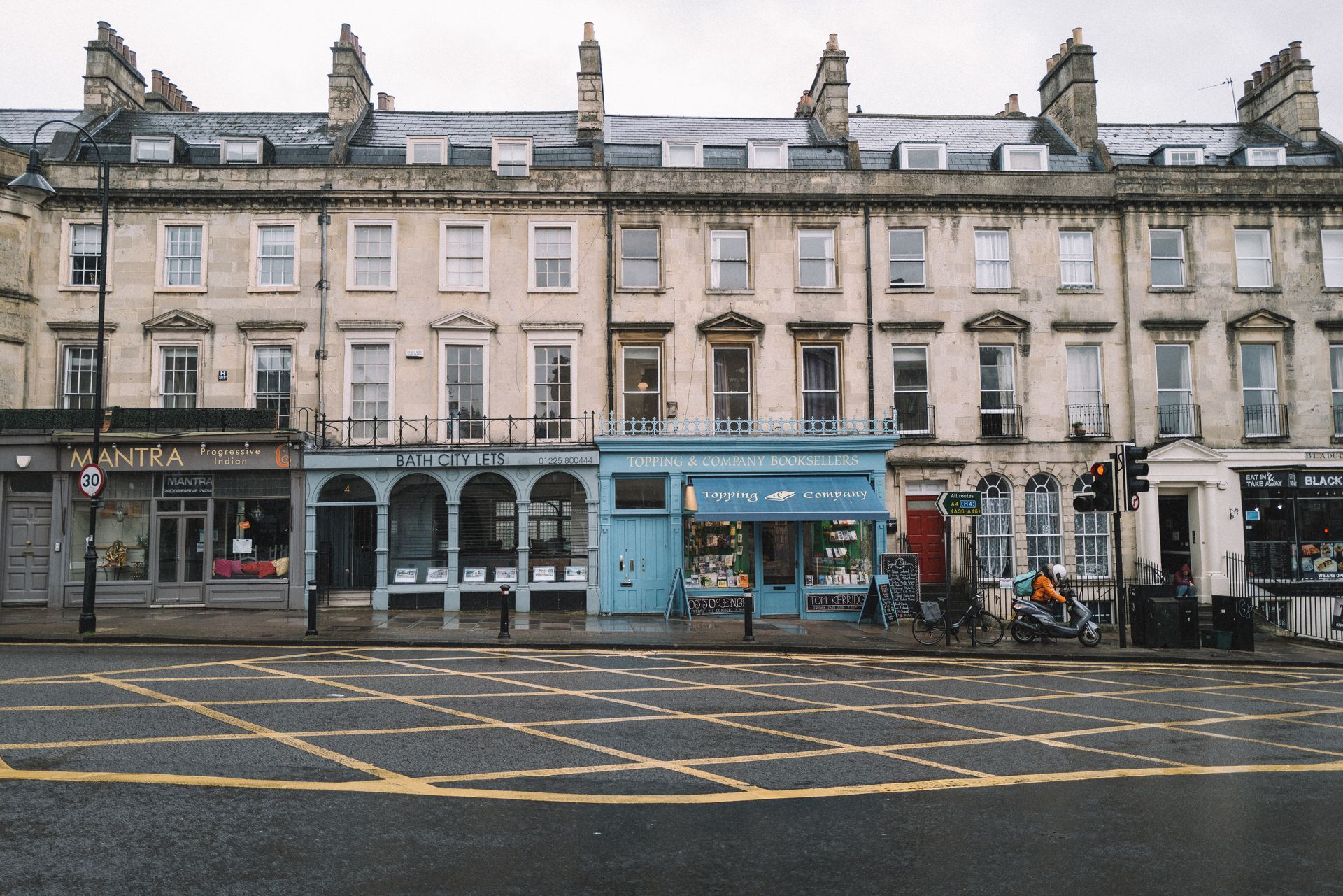
As Chair of High Streets Task Force, our Co-founder Mark Robinson is delighted to contribute and support #TakeBackTheHighStreet campaign. The UK's high streets are the beating hearts of communities and they have reached a critical tipping point. Three decades of decline because of the growth of out-of-town retail; the rise of megastores; and more recently a seismic shift towards online shopping, has left the high street vulnerable. Over reliant on retail, the Covid-19 pandemic has accelerated the decline. We are perilously close to losing these community spaces that are vital to local economies, community cohesion, civic pride, cultural identity, and local distinctiveness. A new vision for our high streets is urgently needed. This new report from Power to Change provides a snapshot of expert opinion on the state of the high street, alongside policy recommendations for the next government to help create community-powered high streets. Find out why government intervention is need to help reimagine high streets and how community business is helping to revitalise town centres. Read the full report here.

Samantha Fox , Head of Research and Analytics, Ellandi comments for the Evening Standard on the value of increasing creative leisure offerings in town and shopping centres. “Not only does encouraging people to be more active have a positive impact on their health, but it also aids the performance of shopping centres." “Research across our portfolio suggests shoppers who include leisure activities as part of their trip visit 20 per cent more frequently than average. In addition, nearly half of those aged under 30 that we interviewed wanted more leisure facilities within their local centre.’’ Read the full Evening Standard article here .

Fundamentally, the burden of business rates on retail has to be reduced from current levels. The disconnect between rates and rents in the sector is stark: between 2001 and last year, growth in retail rates was more than five times greater than growth for retail rents. Rebalancing can be achieved by reducing the uniform business rate (UBR), revaluing more often, and removing ‘downwards transition’, which is still pegging retail rates to 2008 rental values in many locations. This is really quite striking when you think about it. Research commissioned by Revo confirmed the areas losing out most are actually those the government’s levelling up agenda is supposed to help. The rates rise in the North and Midlands has been almost 12.5-times greater than the rise in rental values, compared to 4.1-times greater in the South. So it makes political as well as equitable sense to truly rebalance the tax. I was privileged to contribute to Revo’s submission to the government’s recent business rates review – including calls for the UBR for retail to be ‘reset’ to 30p, annual revaluations, ditching downwards transition, and reform of empty property taxation to better reflect the realities of the retail property market. Of course, this has a cost. But supplementary tax streams such as an online sales tax, turnover tax or delivery charge could plug the gap. They can also offer a fairer way of distributing the tax burden – allowing the system to evolve with consumer trends and tap into a sustainable revenue stream. Jonathan Cole, Investment Director, Ellandi

The pandemic has accelerated the high street’s decline. Is government support the answer, or does the concept need a wholesale rethink? It was 40 years ago that Coventry band The Specials sang about ghost towns. At the time, the song was seen as a comment on urban decay and deprivation in inner cities. But it could just as well be an anthem for the Covid-19 era. The latest statistics around the high street make for alarming reading. The constant cycle of lockdowns has crippled footfall, which reached an all-time low last May, when the British Retail Consortium reported a 77.8% year-on-year decline. That’s had an immediate effect on occupancy levels. The shop vacancy rate stood at 13.7% in Q4 2020, according to the BRC – 1.6 percentage points higher than the same point in 2019. In essence, the mass closure of non-essential retailers has pushed vast numbers of consumers towards online shopping, and left the nation’s high streets emptier than ever. “What Covid has done is, it’s made 10 years of change happen in 10 months,” says Mark Robinson, chair of the government-commissioned High Streets Task Force. “That is really quite brutal and that’s the reality we find ourselves in now.” Robinson foresees “really tough” times ahead. And food retailers on the high street, although safer than most forms of retail, are by no means immune from the effects of dwindling footfall and boarded-up spaces. Because no one visits a ghost town. But all is not lost. Crucially, Robinson and other experts believe the high streets can still have a viable future if they adapt to the needs of their local communities. So what needs to happen to help the high street get back on its feet? What challenges will it face in the recovery period, and how can it overcome them? And after all this, what will the future high street look like? 13.7% high street vacancy rate in Q4 2020 17.3% shopping centre vacancy rate in Q4 2020 47% increase in number of vacant units in the City of London from 2019 to 2020 68.3% year-on-year decline in high street footfall in February 2021 4.9% decline in retail sales volume in the three months to January 2021 35.2% proportion of spend that went online in January 2021, the highest on record Sources: BRC, ONS Amid all these startling figures, it’s important to note that high streets were facing serious problems well before coronavirus entered the national lexicon. Robinson points to the creation of his task force in 2019, before mass shop closures came into the equation. That came off the back of a landmark report on the high street by John Timpson in 2018, which called for a fundamental change in approach to make town centres “a place people want to be”. And it was hardly the first review to delve into the issue of dwindling footfall and spend. Retail guru Mary Portas penned her report in 2011, which argued that the high street could only survive by “recognising what’s happened and delivering something new”. The pandemic has simply made the problems identified in these reviews even more pressing. “Covid has accelerated what was already happening,” says Bill Grimsey, a retail veteran and high street specialist who has himself written reviews on the subject. The migration towards online shopping is, of course, one of these issues. “We predicted 30% of spend would be online by 2030, and Covid took it up to about 40% at one stage,” says Grimsey. ONS statistics showed online transactions had reached an all-time high in January, when they accounted for 35.2% of all spend And Kyle Monk, director of insight at the BRC, believes that level is unlikely to fall much once coronavirus restrictions are lifted. “They say it takes weeks to form a habit and we’ve had nearly a year of this – for eight months of the last 12, we’ve had some restrictions in place – so this behaviour could be sticky for some time,” he says. If not forever. This new reality has served to highlight another long-standing problem: business rates. The system has long been criticised for failing to recognise the shift to online spend, taxing the retail sector too heavily, and relying on outdated property values. “We’ve been saying business rates are broken for years now,” says Monk. The problem was solved – temporarily, at least – by the government abolishing business rates during the pandemic. That will soon come to an end, though. In the latest Budget, the government said the full holiday would end on 30 June (though there is 66% relief, with a cap, for the rest of the financial year). That retailers will suddenly have to pay rates again, just as they are starting to reopen, could undermine efforts to revive high streets. What’s worse, the planned review of the business rates system has been pushed back from spring until autumn this year – which means there will be a long wait for any real change to the way the tax is calculated. Vivienne King, CEO of real estate company Revo and chair of the Shop Keepers Campaign, is worried. “We’re concerned the review has been postponed, which means retailers will have to wait that much longer to have to seriously consider if they can continue in operation with business rates as they are, or whether we will see a reform that involves a significant cut in rates payable.” A sweeping reform is vital, says King, who points to a survey of 400 property experts and advisers conducted by Revo and Lambert Smith Hampton last year. Half of respondents named high business rates as a key challenge. That was only second to the threat posed by online shopping, cited by 70% of respondents. So under the Shop Keepers Campaign, King is calling for immediate relief in the form of extending the full business rates holiday until September, and keeping rates at just 50% until a wider revaluation in 2023. That is crucial considering the business rates multiplier is 51p in £1. A more realistic number, she says, is 30p. In the longer term, King wants a complete rethink. “What we need is for the government to recognise the stress on bricks-and-mortar operations, and particularly the stress being caused by business rates,” she says. “We need a long-term sustainable reform that would give business a chance in our town centres.” Her calls are echoed by many others in the industry. “Serious steps should be taken to continue the relief indefinitely and move towards levelling the playing field with online retailing,” says Alfred Bartlett, head of the retail & leisure group at property and planning consultancy Rapleys. Looking ahead, he wants to see a comprehensive review of business rates “to try and move away from linking rates to historic rental values, which then apply in vastly different economic climates”. Bartlett believes that change should come alongside incentives to stimulate the recovery of the high street. “I believe incentives should be given to developers to invest in the regeneration, or rather resurgence, of town centres,” he says. He argues those incentives could also extend to startup retailers “in certain key sectors” to give them the confidence to set up stall in town centres. For the moment, the government is simply in crisis mode. In the latest Budget, it unveiled plans to inject cash into the high street through one-off grants and funds. That includes the £4.8bn Levelling Up Fund, designed to support town centre and high street regeneration, and the Restart Grant scheme for businesses most badly affected by Covid-19, which will be available to retailers. Those measures have been widely welcomed – with a caveat. “Positive measures from the Budget include the restart and lockdown grants, business rate holiday and the extension of furlough. These are all bound to help but only in the very short term,” says Keith Hardman, head of development and strategic advisory at commercial real estate company Cushman & Wakefield. “Large as the funding numbers seem and welcome as the investment is, the scale of government financial intervention needs to be considerably greater,” he adds. “The real challenge in too many instances is how to bring about the scale of regeneration needed to arrest the spiral of decline before this becomes irreversible.” On the other side of the coin, Robinson of the High Streets Task Force says the high street can’t afford to rely too heavily on government funding. “What is very clear is we can’t expect government to do all the heavy lifting,” he says. “We have to create an environment where once again the private sector feels more comfortable about investing in our town centres, and we’re not there yet.” What the Government is Doing The government unveiled a raft of financial measures to stimulate the high street in this month’s Budget. These form part of the government’s wider attempts to steer beleaguered town centres through the Covid-19 crisis. So what government help is available? Business rates holiday: Since the start of the pandemic, the government has offered business rates relief to 750,000 eligible retail, hospitality and leisure businesses. The relief has been extended across several consecutive three-month periods. In the latest Budget, Rishi Sunak announced the full holiday would be extended until end of June. But there will be 66% relief on rates until the end of March 2022, capped at £2m relief for non-essential retailers and just £105,000 for essential retailers. Restart Grant scheme: In a bid to help the hardest-hit businesses recover, the Treasury revealed a Restart Grant scheme in the latest Budget. The £5bn fund will offer a one-off cash grant of up to £18,000 for hospitality, accommodation, leisure, personal care and gym businesses in England, and will be allocated based on application. Levelling up fund: The £4.8bn UK-wide Levelling Up Fund was a big talking point of the Budget. Local areas will be able to submit bids for the fund, which is designed to “support town centre and high street regeneration, local transport projects, and cultural and heritage assets”. The sum may sound large, but it has attracted some controversy from critics, who argue it has favoured Tory seats and failed to make up for the ongoing slash to local budgets. Future High Streets Fund: In December, the government announced it would invest £830m from the Future High Streets Fund into 72 areas in England to “deliver ambitious regeneration plans”. Plans include a £17.9m investment to boost Worcester town centre by renovating the Scala Theatre and Corn Exchange, and a £25m investment to modernise Swindon town centre. Department store surplus For him, that means moving away from the traditional town centre structure. No longer can department stores be the focal point of every town, for example. Although Robinson believes there is some future for the format, the struggles of BHS, House of Fraser and John Lewis, show there are simply too many at present, he says. “We’ve anchored our retail spaces with department stores,” he says. “They didn’t do that in France or in Germany – they have a 20th of the department stores we have.” “Department stores are in many ways uniquely vulnerable,” Robinson adds. “Where’s the one place you go to buy everything now? The internet.” The secret to making high streets more appealing in the online age is moving away from this tried-and-tested “clone towns” model, he says. “People are always asking ‘what is the new high street going to look like?’ And it’s a bit of a dumb question because we’re not going to create more clone towns. “Some places will thrive with retail, some will have work space, some will have retirement living, but it won’t be all the same.” With that in mind, a group of 150 experts from the High Streets Task Force will shortly go into selected towns – allocation will be “very much based on need” – to help revamp their centres. They will take into account the needs of the local population and the town’s strengths to develop a collaborative plan. This more individualistic vision means retail will no longer be a default focus. That means accepting an uncomfortable truth: some retail units will close. “There are too many shops,” says Kathryn Wood, partner in the development team at Cushman & Wakefield. Just how many surplus units exist is up for debate, but it is no small number. “It’s very specific to the local demographic, but around a 30% reduction in shops is a reasonable estimate,” Wood adds. “Everything is on the table at the moment, and landlords are keen to find options, whether that’s hotels or offices or leisure” That figure may sound terrifying – and it is a devastating prospect for many retailers and indeed landlords. However, Wood is clear that it doesn’t signal a death knell for high streets. “It’s not doom and gloom by any means,” she says. “It’s about looking at what complementary elements to retail can come together to revive our town centres.” Her work to repurpose retail sites serves to highlight the many different forms those complementary elements can take. In the case of former department stores, they can be an ideal space for big-budget projects. Wood points to the planned development in Wandsworth Southside Shopping Centre, for one. Leisure operator Gravity has taken on the former Debenhams site with the aim of turning it into a four-floor hub with facilities such as an electric go-karting track, augmented reality bowling and a crazy golf course, alongside drinking and dining outlets. Similarly ambitious is the Market Hall West End project, which saw the former BHS Oxford Street site turned into the UK’s largest food hall. “I think they’ve done really well with that,” says Wood. “These are quite deep spaces and there’s not a lot of natural light. So they did a really good job in terms of getting light in, putting a food court in the centre.” But retail conversions don’t need to be big bang attractions to work. Residential projects, flexible working spaces and hotels are all valid uses if they meet the needs of the local population. Even the likes of Deliveroo and Just Eat are considering high street locations for their dark kitchens, she says, due to their central position. “Basically everything is on the table at the moment and landlords are keen to find options, whether that’s hotels or offices or leisure,” says Wood. A united approach Arguably, though, the decision shouldn’t just be down to the landlord. Because what’s best for the individual isn’t necessarily best for the town as a whole. That’s a point illustrated by Iceland’s property and acquisitions director Simon Anderson, who berates the lack of collaborative working. “I think what a lot of people forget about is that high streets are in very fragmented ownerships,” he says. “So getting people together, where you might have lots of disparate ownerships with disparate interests, is difficult because people aren’t pulling in the same direction.” That need for a united approach is echoed by Grimsey. He has written various reports on how to revamp the town centre, which all promote one core idea: repositioning high streets as ‘multifunctional hubs’ that serve the needs of the local community. That means high-level, rather than individual, thinking about what the town needs. For Grimsey, it’s almost a case of treating each high street like a brand in its own right. “We need to bring everyone in the community together and say ‘this is our town and this is what we stand for’,” he says. “And to do that, they need an overall plan rather than dealing with bits of space that open up because a BHS closes. Otherwise it becomes reactive and led by developers.” That why local leadership is another key tenet of Grimsey’s recommendations. He argues that local authorities must lead the future of their high streets by producing an overall vision, and working collaboratively with other stakeholders to make that a reality. The government agrees, arguing local authorities have a “critical role to play” in the high street’s future. “I think the missing ingredient is great local leadership,” says Grimsey. “Chief execs of local authorities need to be more like [former Tesco CEO] Dave Lewis. They need to be commercial and to get people together, to work with politicians and work with the community, to get a plan and then go out and finance it.” These plans need to avoid being constrained by the financial resources currently available. “In all the talks I do around the country, I say to local authorities don’t start with money. Because if you start with what you think you can afford, you won’t do anything,” he says. “Start with a plan. Make it long term – 20 or 30 years – and courageous and ambitious, and be aware of the need for your town to compete with other towns.” In some cases, that means thinking beyond what gives you the highest immediate returns. In Stockton-on-Tees, for example, the old Globe theatre had become a Mecca Bingo site. Once Mecca moved out, local leaders decided to think about what was best for the town rather than simply seeking out the highest bid. The result is a restored Globe theatre that is sold out for its planned opening night later this year. This kind of thinking can put an end to the “one-size-fits-all” mentality that has plagued Britain’s high streets, Grimsey argues. Jonathan House, devolved and local government advisory leader at PwC, shares a similar vision. As a former CEO of Cardiff City Council, he knows the power of strong local leadership – and believes it will be vital to the success of high streets. “What works in Cirencester won’t necessarily work in Harrogate. This won’t be a cookie-cutter approach,” he says. “The model won’t be about cloning towns because that won’t work for communities or businesses.” So in essence, there is no simple answer to what the new high street will look like. In fact, the lack of one single vision could be exactly what transforms high streets from Covid ghost towns into the exact opposite: community hubs with a new lease of life.
Panel Recordings & Podcasts

Last month at UKREiiF in Leeds, BE News held a roundtable discussion on The Social Value of Retail. Sponsored by Workman LLP , Sam Fox our Head of Research & Analytics, joined other senior industry and local authority figures to explore how developers, investors, and retailers are making retail central to vibrant, mixed-use communities. The discussion covered the possibilities for partnering with community organisations and examined retail spaces that have effectively incorporated social responsibility into their practices, benefiting the communities they serve. Our ‘community first’ approach unlocks financial value by creating social and environmental value. Each town centre we improve, improves the lives and opportunities of the people who live there.


